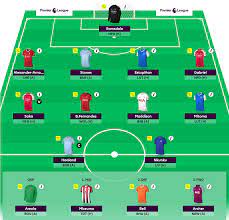In the realm of fantasy sports, where passion and strategy meet, creating your dream team is both an art and a science. With countless enthusiasts participating in fantasy leagues, the competition is fierce, and the pressure to outperform is relentless. To stand out and claim victory, you need an extraordinary understanding of the game, a keen eye for talent, and a strategy that can outmaneuver your rivals.
The Foundation: Research and Analysis
1. In-Depth Player Analysis
Building a formidable fantasy team begins with in-depth player analysis. Don’t just focus on star players; delve into the statistics and performance history of each player. Look beyond the surface-level data and consider factors like consistency, injuries, and even the players’ recent performances. A hidden gem may be lurking in the data, waiting to lead your team to glory.
2. Mock Drafts for Practice
Mock drafts are invaluable tools for honing your drafting skills. Practice, practice, practice. Mock drafts allow you to experiment with different strategies, understand player values, and develop a keen drafting instinct. A successful draft sets the foundation for your entire season.
3. Team Composition
Consider the roster structure of your fantasy league. The number of players, positions, and scoring rules can significantly impact your strategy. Tailor your player selections to maximize your points under the league’s specific guidelines.
Mastering the Art of Trades
4. Trading Strategy
Trades can be the game-changer in fantasy leagues. Building a trade strategy that aligns with your team’s goals is essential. Assess your team’s strengths and weaknesses, and target trades that address your shortcomings. Remember, it’s not always about acquiring the best player; it’s about acquiring the player that complements your team.
5. Proposing and Negotiating Trades
Effective trade proposals are crucial. Be polite and professional in your communication with fellow managers. Make your intentions clear, and ensure that the trade is beneficial for both parties. Negotiation is an art, and the best fantasy managers are masters of this craft.
Stay Informed: Keep Up with the Game
6. Injury Updates
Injuries are a harsh reality in the world of sports. Staying updated on player injuries and recovery timelines is essential. It can make the difference between benching a star player who’s underperforming due to an injury and getting valuable points from a lesser-known backup.
7. Player News and Updates
Daily news can provide valuable insights. It’s not just about injuries; it’s about player dynamics, trades, and off-field situations. The best fantasy managers stay ahead of the curve and use this information to make informed decisions.
Flexibility: Adapting to Change
8. Waiver Wire Strategy
The waiver wire can be a goldmine for hidden talent. Be vigilant in monitoring players who are emerging as stars. Don’t hesitate to make strategic drops and adds to enhance your team.
9. Regular Team Check-Ins
Your fantasy team is not a set-and-forget entity. Regularly review your roster, assess your team’s performance, and make adjustments. Flexibility and adaptability are key to maintaining a competitive edge.
The Mental Game
10. Patience and Perseverance
Fantasy leagues can be a rollercoaster of emotions. Understand that no strategy guarantees instant success. Maintain your composure, stay patient during rough patches, and trust in your research and analysis.


